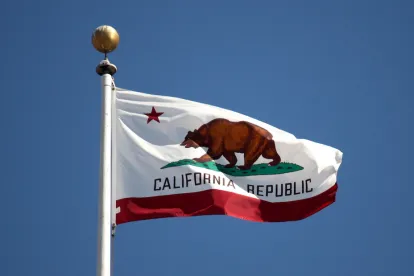'Tis the season to review the new laws that have been passed this year that will affect California employers in 2019 and beyond. Of particular note are the new laws that followed the outcry over workplace-related sexual harassment, also known as the #MeToo movement. As always, employers should review their policies and practices to ensure ongoing legal compliance and to limit potential exposure. Be sure to consult with legal counsel as to any questions.
Anti-Harassment Training Requirements Expanded
On September 30, 2018, Governor Jerry Brown approved SB 1343, which amends Government Code §§ 12950 and 12950.1, greatly expanding the requirements for providing anti-harassment training. Previously, only supervisors were required to be trained and only for companies with 50 or more employees. However, the new law requires that both supervisors and employees be trained every two years for any company with five or more employees. While there are many questions still outstanding as to the practical implementation of this new law, the Department of Fair Employment and Housing's (DFEH) currently published interpretation is that ALL employees must be trained in calendar year 2019, even if the company provided training in calendar year 2018.
Highlights of the new law include:
-
By January 1, 2020, California employers with five or more employees are required to provide: (1) at least two hours of classroom or other effective training and education regarding sexual harassment prevention to supervisory employees; and (2) one hour of sexual harassment prevention training and education to nonsupervisory employees. New employees must be trained within six months of hire.
-
On or after January 1, 2020, in addition to regular employees, employers will also be required to provide temporary or seasonal employees with sexual harassment prevention training within 30 calendar days after the hire date or within 100 hours worked, if the employee is expected to work for less than six months. If the temporary employee is provided by a temporary services employer, training must be provided by the temporary services employer, not the client.
-
As noted, the DFEH's current interpretation of the new law is that all covered employers are required to provide training in calendar year 2019, on or before January 1, 2020, even if training was provided in 2018. Thereafter, anti-harassment training must be provided once every two years.
Stay tuned as to whether further clarifications are provided on these new training requirements, either from the DFEH or the legislature, as many public agency groups are formally seeking clarification from the DFEH.
New Limitations on Confidentiality in Connection with Sexual Harassment Claims
Several new bills were enacted to respond to assertions that sexual harassment victims often feel as though they have been improperly silenced by virtue of settlement agreements and/or concerns about defamation claims that might be asserted against them if they were to raise complaints. To address these issues, the following bills were passed:
SB 820 amends the California Code of Civil Procedure to add Section 1001, which provides that effective January 1, 2019, settlement agreements involving civil or administrative claims of sexual assault, sexual harassment, gender discrimination or retaliation may not include a non-disclosure provision as to the underlying factual allegations of the complaint. Under CCP § 1001, any such non-disclosure provisions of factual information will be deemed void as a matter of law and against public policy.
Importantly, although underlying factual allegations that have been set forth in a civil or administrative complaint cannot be subject to non-disclosure provisions, certain portions of settlement agreements may remain confidential, including the amount paid in settlement of a claim. Additionally, non-disclosure agreements are permitted where the factual allegations have not been filed in civil or administrative actions, i.e., where claims have only been set forth in a demand letter or an internal complaint.
AB 3109 adds § 1670.11 to the California Civil Code to void and make unenforceable any provision in a contract or settlement agreement (such as a confidentiality provision), entered into after January 1, 2019, that waives a party's right to testify regarding criminal conduct or sexual harassment. AB 3109 applies to testimony in an administrative, legislative or judicial proceeding, so long as the person's testimony was required by the court, administrative agency, or legislative body.
AB 3109 stems from the lawsuit filed by American Olympic gymnast McKayla Maroney against the US Gymnastic Association (USGA). Maroney had entered into a settlement with USGA after she, and many others, were sexually abused by team doctor Larry Nassar, when she was 13 years old. The settlement agreement required that Maroney maintain public silence about the abuse and subjected her to a $100,000 fine if she violated it. Maroney brought suit in California to challenge the provision so that she could testify against Nassar in his criminal trial. Due to public pressure, USGA agreed to waive its right to enforce the agreement. However, if USGA had sought to enforce the terms of the agreement, Maroney could have been subject to the fine. Because less prominent plaintiffs might not receive the same treatment, AB 3109 was introduced to ensure that such silencing provisions in settlement agreements would not be enforceable.
AB 2770 was signed into law on July 9, 2018, co-sponsored by the California Chamber of Commerce. AB 2770 aims to protect victims and employers from defamation claims related to making complaints or communicating information about alleged sexual harassers to others. The bill expands the protections from prosecution for defamation currently set forth in Civil Code § 47.
AB 2770 provides two new categories of communications protected from defamation claims. First, it protects an employee’s complaints of sexual harassment to an employer based on credible evidence, made without malice. Second, it protects communications between an employer and interested persons regarding a sexual harassment complaint. Such communications could include those between an employer and a government agency like the DFEH or Equal Employment Opportunity Commission (EEOC), or those between an employer and an outside investigator or potential witness. As with other protections provided under Civil Code § 47, protection is only provided for communications made without malice.
AB 2770 also provides employers with additional protection in reference check situations, expressly authorizing an employer to answer whether it would rehire an employee and whether or not that rehire decision is based on its determination that the former employee engaged in sexual harassment. Under existing law, current or former employers are protected from defamation liability when making any statement concerning the job performance or qualifications of a person who has applied for employment elsewhere, at the request of a prospective employer or the applicant, as long as those statements are made without malice and based upon credible evidence. The intent of this provision of AB 2770 is to allow former employers to warn potential employers about an individual’s alleged conduct in the workplace without the threat of a defamation lawsuit.
Employers should note that, while AB 2770 provides additional protections for communications regarding sexual harassment, it does not address communications regarding other forms of harassment, such as harassment based on race, religion, national origin, age, and other protected classifications.
Statute of Limitations for Claims of Sexual Assault Extended
AB 1619 was approved by the Governor on September 30, 2018. The bill extends the time for a victim of sexual assault to bring a cause of action. The new statute of limitations will be 10 years from the date of the last act of violence, or three years from the date the victim knew or should have known that an injury or illness resulted from an act of sexual assault.
Unruh Civil Rights Act Amendments
Currently, Civil Code § 51, known as the Unruh Civil Rights Act, prohibits discrimination and harassment by business establishments. Although not a change in existing law, SB 224 was enacted to reinforce the state's condemnation of harassment and discrimination. SB 224 was in response to well-publicized allegations of sexual harassment in industries typically involving men in positions of power who repeatedly took advantage of women, such as the entertainment industry, the venture capital sector, and in the political arena.
By specifically adding "investor, elected official, lobbyist, director and producer" to the list of examples identified in the Code, the Legislature highlights and provides additional notice to people in these roles, confirming they can be sued for engaging in sexual harassment towards those over whom they wield significant power and influence. The goal of the bill is to act as a greater deterrent against discriminatory and harassing behavior and thereby to help transform the "boys' club" culture for tech, entertainment, and political industries.
Clarification Provided on Pre-Employment Salary History Inquiries
Last year, we reported on the new law in California prohibiting certain use of salary history in the hiring process. However, the law was unclear as to whether salary information could be used at all, including for internal applicants. AB 2282 provides clarification, expressly defining "applicant" as "an individual who is seeking employment with the employer and is not currently employed with that employer in any capacity or position." Therefore, prohibitions on the use of salary history information do not apply to current employees. The new law also expressly clarifies that employers may ask an applicant about their "salary expectation," directly addressing employer concerns about the ability to offer competitive salaries without violating the law.
Existing law also requires an employer to provide the pay scale for a position to an applicant applying for employment upon reasonable request, but did not define "reasonable request" or "pay scale." AB 2282 clarifies that "pay scale" means a "salary or hourly wage range" and that "reasonable request" means "a request made after an applicant has completed an initial interview with the employer." Therefore, the new legislation clarifies that employers do not need to provide pay scales to individuals other than those who have interviewed for a position, i.e., employers do not need to provide pay scales to applicants before interviews and do not need to include pay scales in job postings.
All human resources personnel and individuals involved in applicant interviews should be educated and trained on these clarified requirements and restrictions regarding salary history inquiries.
Women Required On Boards of Public Companies
By no later than December 31, 2019, publicly-held corporations whose principal executive offices are located in California must have a minimum of one female on their boards of directors. A corporation is not required to replace existing male board members to comply and may instead increase the number of directors, adding a female board member. By the close of the 2021 calendar year, the required minimum number of female board members increases to two if the corporation has five directors, or to three if the corporation has six or more directors. The new law (SB 826), codified at Section 301.3 of the Corporations Code, defines "female" as an individual who self-identifies her gender as a woman, without regard to the individual's designated sex at birth. A publicly-held corporation is a corporation with outstanding shares listed on a major United States stock exchange.
In its findings and declarations supporting SB 826, the California Legislature relied on various studies which concluded that publicly-held companies perform better when women serve on their boards of directors. One study cited in SB 826 estimated that it could take more than 40 years for the numbers of women on boards to match men. Accordingly, it is hoped that this new, proactive requirement will boost the California economy, improve opportunities for women in the workplace, and protect California taxpayers and shareholders.
Failure to timely comply with this new law may result in fines up to $100,000 for a first violation.
Mediation Confidentiality
Many employment disputes and lawsuits are settled and resolved through voluntary, private mediation conducted by retired judges or attorney mediators. Existing law provides that all communications, negotiations, and settlement discussions in mediation are strictly confidential and are not admissible or subject to discovery.
Based on a perception that many lay clients are unaware of these mediation confidentiality restrictions, effective January 1, 2019, the California Legislature will now require that attorneys provide their clients with written disclosure forms explaining the confidentiality restrictions related to mediation – before the client agrees to participate in the mediation. Among other requirements, SB 954 requires that the disclosure form must be in at least 12-point font and be printed on a single, stand-alone page, stating that the client has read and understands the confidentiality restrictions. This new law does not apply to class or representative (PAGA) actions.
Employers Must Make Reasonable Efforts To Provide A Private Lactation Location
Existing law requires every employer to provide a reasonable amount of break time to accommodate an employee desiring to express breast milk and requires an employer to make reasonable efforts to provide the employee with the use of a room or other location, other than a toilet stall, in close proximity to the employee’s work area for the employee to express milk in private. AB 1976 amends Section 1031 of the Labor Code and now requires an employer to make reasonable efforts to provide an employee with use of a room or other location, other than a bathroom. An exemption applies in limited circumstances if the employer can prove an undue hardship.
Clarification of Employees' Right to Receive Copy of Pay Statements
An employer's obligation regarding pay statements has long included a duty to allow employees to inspect or copy their pay statements within 21 days of such a request. The California Legislature, in SB 1252, has “clarified” that employees’ rights to review and copy pay statements also includes the right to receive a copy of the records from the employer. The employer is permitted to charge the employee “the actual cost of reproduction” of the records, as set forth in Labor Code Section 226.
Limitations on Use of “Particular Convictions” in Criminal Background Checks
Under the Labor Code, employers may not consider a job applicant’s expunged or judicially-sealed convictions until a conditional offer of employment has been extended. The law carves out exceptions, however, for certain sensitive jobs, such as with a school, where the criminal information is needed pursuant to state or federal law. SB 1412 was an effort to limit employer’s use of these exceptions. SB 1412 dictates that an employer can only consider “particular convictions” when rejecting applicants. It defines “particular conviction” as “a conviction for specific criminal conduct or a category of criminal offenses prescribed by any federal law, federal regulation, or state law that contains requirements, exclusions, or both, expressly based on that specific criminal conduct or category of criminal offenses.”
California Minimum Wages Increases for 2019
Effective January 1, 2019, California employers must comply with mandated minimum wages increases. The wage increases are in accordance with the 2016 legislation signed by Governor Jerry Brown to put California's minimum wage on track to reach $15 per hour by 2022.
On January 1, 2019, California employers with 25 employees or fewer will now be required to pay their employees a minimum wage of $11.00 per hour. On January 1, 2019, California employers with 26 employees or more will now be required to pay their employees a minimum wage of $12.00 per hour.
Many local entities (cities and counties) will also be increasing the minimum wage during 2019. View the list of the minimum wage increases by various cities/counties.






 />i
/>i

